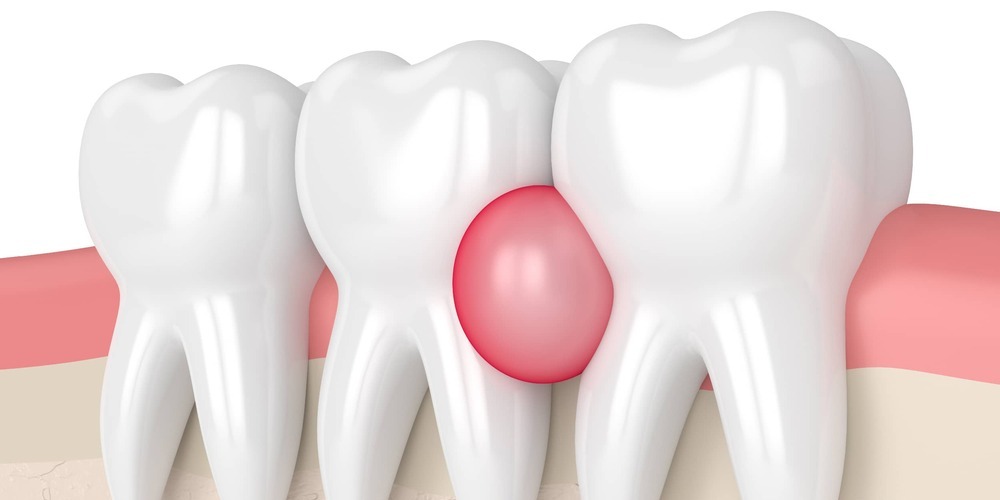
Can You Extract a Tooth with an Abscess?
Introduction
When a tooth develops an abscess, it’s not just a mere inconvenience—it’s a dental emergency that warrants prompt attention. This condition is characterized by a pocket of pus resulting from a bacterial infection and can lead to severe pain and swelling. If left untreated, an abscess can have serious consequences, such as the infection spreading to other parts of the body. While extracting a tooth with an abscess is possible, it’s important to approach it with caution and seek professional dental care. So, can you extract a tooth with an abscess?
Is Tooth Extraction Necessary for an Abscessed Tooth?
The question of whether tooth extraction is necessary for an abscessed tooth is one that requires careful consideration.
Timely treatment of an abscess is crucial to prevent the spread of infection and more serious health complications. While there are various treatment options available, including antibiotics and root canal therapy, sometimes the damage to the tooth or surrounding tissue is too extensive. In such cases, tooth extraction may be the recommended course of action to remove the source of infection and protect your overall oral health.
Understanding when extraction is appropriate and how it fits into the broader spectrum of dental emergencies is essential for anyone experiencing this painful condition. Acting quickly can make all the difference in preserving not only your smile but also your systemic health.
Understanding Tooth Abscess: Causes, Symptoms, and Risks
Certainly, one of the most painful dental emergencies involves a condition known as an abscessed tooth. This dental predicament is defined as an infection that has accumulated in or around the tooth. It is typically caused by bacteria entering the tooth through a dental cavity or a chip or crack on the surface. Once inside, these bacteria can multiply, causing an infection that can lead to swelling and pain.
Symptoms of an Abscessed Tooth
How do you know if you have an abscessed tooth? Here are a number of symptoms to look out for:
- Severe and persistent throbbing pain
- Sensitivity to hot and cold temperatures
- Pain when biting or chewing
- Swelling in the face or cheek
- Sudden rush of foul-tasting and smelling fluid in your mouth followed by relief of pain if the abscess ruptures.
If you experience any of these symptoms, it’s important to contact your dentist right away. Diagnostic procedures such as dental X-rays and examinations may be conducted to ascertain the presence of an abscess.
Root Canal Treatment: A Common Solution
Once diagnosed with this condition, one might wonder: “What’s next?” A key player in resolving this issue is a procedure known as root canal treatment. This involves removing the infected pulp inside the tooth, cleaning and disinfecting the area, then filling and sealing it.
Retreatment: A Second Chance for Healing
In some cases, however, root canal treatments may fail. This could be due to several reasons such as complex canal anatomy not initially detected, delay in placement of restorative materials following the procedure, or inadequate cleaning and sealing. In such cases, retreatment becomes an option worth considering. This second attempt at a root canal involves removing the initial root filling, cleaning the canals again, and refilling them.
Tooth Extraction: When All Else Fails
But what if a root canal or retreatment isn’t enough? This brings us to another question: “Can tooth extraction be considered a viable treatment approach for abscessed teeth?” The answer is yes, but it’s not always the first line of action.
Tooth extraction comes into play when other treatments have failed or if the tooth is severely damaged. Dentists do not take this decision lightly as preserving natural teeth is always the objective. Factors such as the condition of the tooth, extent of damage, patient’s overall health, and possibility of restoring the tooth through other procedures are considered before resorting to extraction.
Risks of Untreated Abscessed Teeth
It’s important to remember that an untreated abscessed tooth can lead to serious health risks. The infection can spread to other parts of your body and cause complications such as Ludwig’s Angina or sepsis—both potentially life-threatening conditions.
In essence, understanding the causes, symptoms and risks associated with an abscessed tooth gives you a better chance at seeking appropriate treatment in a timely manner. The importance of professional dental care in these instances cannot be overstated—it could make all the difference between saving and losing a tooth.
The Role of Dentist in Treating Abscessed Teeth: Procedures and Considerations
An abscessed tooth is a serious dental condition that requires immediate attention from a dental professional. Two treatment approaches stand at the forefront – root canal therapy and, in some instances, tooth extraction. Let’s delve deeper into how each procedure plays out.
Root Canal Therapy: A Saving Grace for Abscessed Teeth
Root canal therapy, also known as endodontic treatment, aims to save the infected tooth by removing the infected pulp inside. This procedure becomes necessary when the tooth’s pulp, which consists of blood vessels, nerves, and connective tissues, becomes inflamed or infected.
The steps involved in a root canal procedure are:
- Cleaning the Root Canal: An endodontist (a dentist who specializes in treating issues related to the tooth’s pulp) removes everything that is inside the root canal.
- Filling the Root Canal: After cleaning and disinfecting, the endodontist fills the space with a material called gutta-percha and seals it off.
- Adding a Crown or Filling: A crown or filling is added for protection, and the patient continues life with a fully functional tooth.
Saving natural teeth is always the first preference for dentists because it results in better health outcomes and functionality for patients. Hence the importance of seeking specialized care from an endodontist cannot be over-emphasized – their expertise can often make a difference between saving and losing a tooth.
When Root Canal Therapy Fails: The Retreatment Option
Despite its high success rate, there are cases where root canal therapy does not resolve the abscess completely. These situations may necessitate a retreatment procedure.
During retreatment:
- Removal of Existing Crown or Filling: The endodontist removes any restoration placed during the initial treatment to access the root canal.
- Cleaning and Examination: The canals are cleaned again, and the endodontist carefully examines the tooth, looking for additional canals or new infections.
- Re-sealing the Tooth: The endodontist fills and seals the canals and places a new crown or filling to restore full functionality to the tooth.
Retreatment shares a similar success rate with initial root canal therapy. However, in some scenarios, even retreatment may not suffice to save the tooth.
Endodontic Surgery: An Alternative Approach
In such cases, endodontic surgery might be an alternative approach. This procedure allows the endodontist to locate small fractures or hidden canals causing inflammation that were not detected during initial or repeat treatments.
The most common type of endodontic surgery is an apicoectomy, or root-end resection. This involves removing the tip of a tooth root and then placing a root-end filling to prevent reinfection.
Each of these procedures – root canal therapy, retreatment, and endodontic surgery – come with their own set of considerations such as cost, procedure time, recovery period, and success rate. It’s critical for patients to discuss these factors with their dentist or endodontist before deciding on their treatment plan.
Preventing and Managing Dental Emergencies Arising from Tooth Abscess
Tooth abscesses are no minor nuisance; they can lead to serious complications if not promptly and effectively addressed. The risk of infection spreading beyond the tooth to other areas of the body is real, with systemic infections such as Ludwig’s angina and sepsis being among the most severe consequences.
Infection Complications
- Localized Spread: Initially, an abscess may seem confined to the tooth, but bacteria can spread to surrounding tissues, leading to swelling and increased pain.
- Systemic Impact: If left untreated, the infection can enter the bloodstream, a condition known as bacteremia. This carries bacteria throughout the body, potentially affecting vital organs.
Systemic Infections
Ludwig’s Angina
- A severe type of cellulitis that affects the submandibular space.
- Can rapidly progress, causing difficulty breathing and swallowing.
- Requires immediate medical attention to secure airways and administer antibiotics.
Sepsis
- Triggered by an overwhelming immune response to infection.
- Can lead to tissue damage, organ failure, and death if not quickly treated.
- Symptoms may include high fever, rapid heart rate, confusion, and extreme pain or discomfort.
Prompt treatment is essential to prevent these severe complications. Dentists may prescribe antibiotics to manage the infection before considering tooth extraction. This approach reduces acute symptoms, making tooth removal safer when necessary.
Proactive care plays a crucial role in averting emergencies caused by tooth abscesses. Patients are encouraged to seek regular dental check-ups and maintain good oral hygiene practices. This includes:
- Brushing twice a day
- Flossing daily
- Using mouthwash to reduce bacterial load in the oral cavity
When experiencing symptoms indicative of an abscess—such as severe pain, swelling, or sensitivity—it’s critical to contact a dentist without delay. They will assess the situation and recommend appropriate steps for treatment.
Conclusion
Immediate dental care is crucial when dealing with abscessed teeth. Delaying treatment or attempting self-treatment measures can lead to serious complications, as previously discussed.
At FineUp Clinic, we prioritize your dental health. Our team of experienced professionals provide evaluation and treatment for tooth abscesses, employing advanced endodontic procedures to preserve natural teeth whenever possible. If you suspect you have an abscessed tooth, don’t hesitate to schedule a consultation.
We will provide personalized advice on the best treatment options for your unique case. These options might include root canal therapy, retreatment, or, in some complex cases, tooth extraction.
After extraction, post-extraction care is vital to prevent infection and promote healing. You might also consider restorative options like dental implants or dental bridges to replace the extracted tooth.
Ultimately, maintaining good dental hygiene is key to preventing tooth abscesses. Here are a few tips:
- Brush twice daily
- Floss regularly
- Limit sugary foods and drinks
- Schedule regular dental check-ups
Despite our best efforts though, dental emergencies can still occur. In such situations, remember that FineUp Clinic is here for you—providing quality care at affordable prices.
